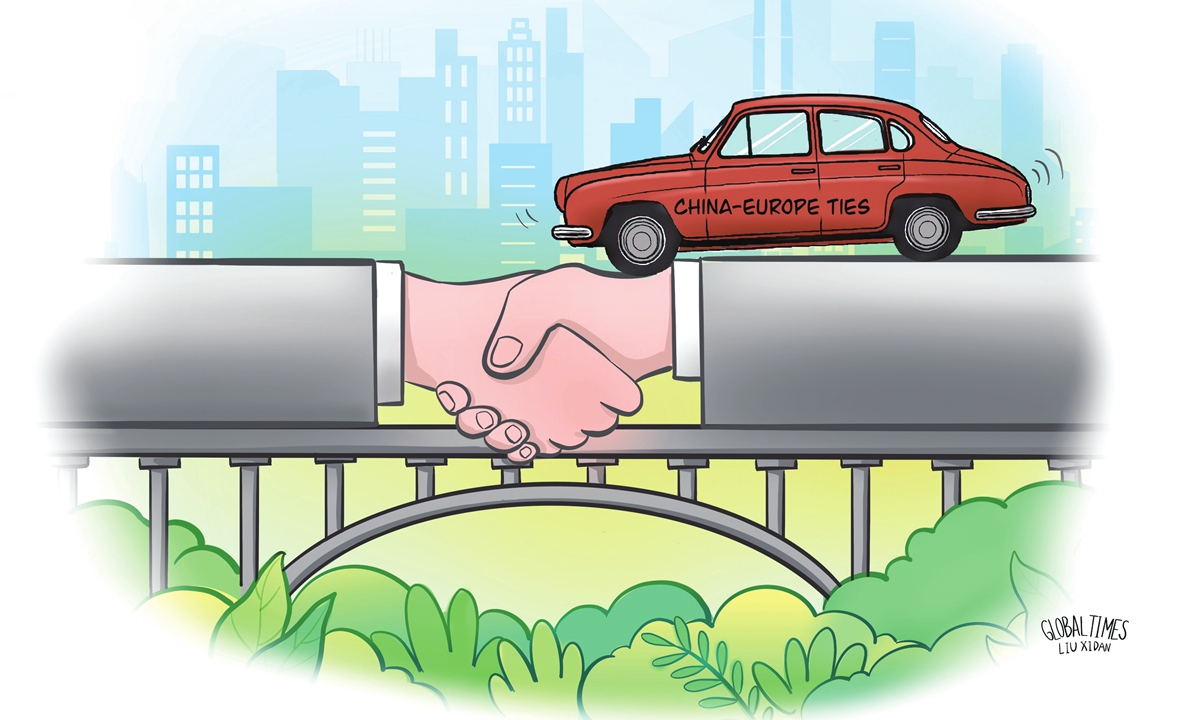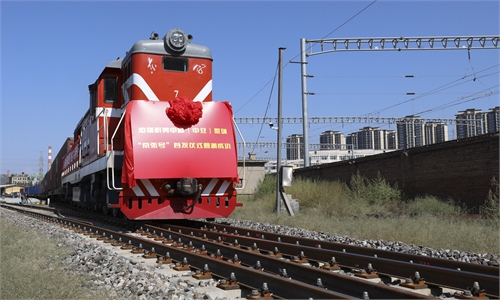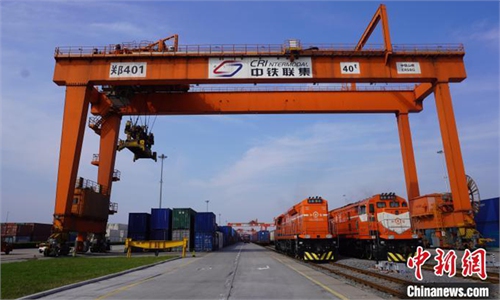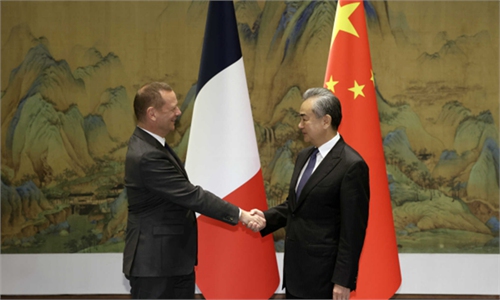
Illustration: Liu Xidan/GT
The period from the second half of 2022 to now has been an important moment for the comprehensive recovery and stabilization of China-Europe relations. Dialogue and communication mechanisms between China and major partners such as the EU, France and Germany have fully resumed, and economic and trade cooperation as well as personnel exchanges between the two sides have regained momentum. According to the consensus reached by the leaders of both sides, the goal of stabilizing China-Europe relations and fully resuming exchanges within this year is being achieved.However, stabilizing the relationship does not mean standing still or making no progress. High-level interactions between China and Europe have returned to normal and become the biggest driving force for advancing bilateral relations. The recent video meeting between Chinese President Xi Jinping and German Chancellor Olaf Scholz conveyed the message that not only should the China-Germany relationship be stabilized but it should also provide momentum for both sides to continuously move forward in their cooperation. China-Europe relations should stabilize but never come to a halt.
The important premise for the continuous advancement of China-Germany and China-Europe relations is to avoid self-imposed limitations, especially to prevent practical cooperation from being engulfed by the haze of politicization and securitization. Due to changes in domestic and international political environments, economic needs and strategic demands, there is a tendency among some EU institutions and European countries to discuss and adjust their policies toward China by setting limits and boundaries on the wide-ranging cooperation. China-Europe trade has also gone through a decline in momentum after the European side adopted more protectionist measures. The Chinese side is aware of its responsibility to stabilize market expectations and promote economic recovery. The European side also needs to do its homework, implement clear policies and take action.
Against the backdrop of rapid changes in the international and regional situation, the connotation of China-European cooperation is indeed undergoing some important changes. Both sides need to maintain dialogue and communication in areas such as rule alignment, trade transformation and industrial upgrading and be prepared for structural adjustments or even reconnection in relevant fields. European countries, represented by Germany, continue to increase their investment in China, and European companies remain positive about participating in cooperation platforms such as the China International Import Expo. These positive factors are the foundation of confidence for China and Europe to jointly cope with the current changes in the world, including economic transformation.
As long as the China-Germany and China-Europe relationship continues to move forward, both sides will not only be able to maintain common interests and achieve added value, but also enhance the quality of cooperation and unleash greater energy, providing more solutions and upward momentum for a turbulent world. Only by adhering to open cooperation can they find the most realistic and reasonable way out, and China is undoubtedly the most reliable partner for Germany and Europe. Therefore, the issue facing China, Germany and Europe is not whether to pursue common interests but how to better safeguard common interests and achieve added value.
At the same time, against the backdrop of an increasingly turbulent world and growing global challenges, the necessity and urgency of expanding China-Europe cooperation from the economic and trade fields to the diplomatic and security fields have become even stronger. Whether it is the Ukraine crisis that concerns European security or the Palestine-Israel conflict that affects European internal stability, if we remove the narrative disputes and cognitive barriers artificially set between China and Europe, we can find that there are no contradictions and differences that cannot be overcome between the two sides. This is because the prolonged escalation and spread of regional conflicts are not in line with the fundamental interests and common interests of both China and Europe.
Although there are differences in specific definitions, realistic concerns and future predictions, both China and Europe see the multipolarization of world politics as an increasingly clear reality. This can serve as a new starting point for the two sides to establish strategic mutual trust, jointly manage crises and uphold true multilateralism. If Europe is concerned about possible emergence of an "uncontrolled multipolarization" that is not bound by international rules and only follows the logic of power politics, it should make every effort to maintain the foundation of economic globalization, which has an important restraining effect on power politics. Europe should strengthen cooperation with China, a partner that upholds multilateralism, and oppose forces that continuously undermine international rules in order to maintain power. Moreover, it should start now and start with itself.
The author is a professor at the Institute of Regional and Global Governance at Beijing Foreign Studies University. opinion@globaltimes.com.cn



